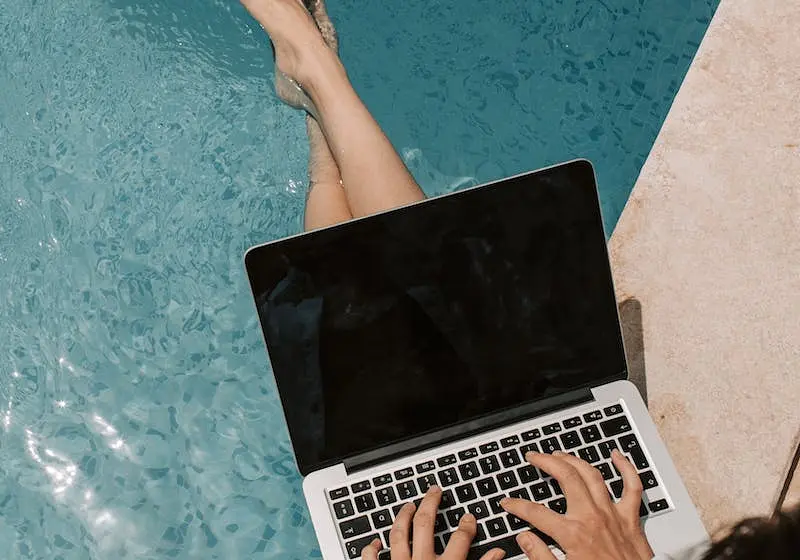Summer, for most people, is usually a time to relax and unwind and enjoy your well-deserved break. Unfortunately, many rising seniors and college students often don't get the memo, and spend the entirety of their break invested in last-minute resume-building activities or passion projects, as it is the last summer before all [censored] breaks lose(i.e., college applications). Some students also completely neglect to do any summer activities or homework, and then come to regret it later when all their work is piled up.
So, what's a student to do? Don't worry, I am in the same position as all of you, figuring out how to devote my time to all aspects of things I need to be done with before summer break, while simultaneously balancing my (somewhat) social life. If this seems like a problem you identify with, here at 10 tips to have a productive, yet balanced summer break, thus making the most of your summer.
Let us slide into your dms 🥰
Get notified of top trending articles like this one every week! (we won't spam you)1. Set goals:
Setting goals is crucial to having a successful summer. You have a sense of purpose and direction when you have certain goals in mind. Decide what you want to do this summer, whether it has to do with a personal hobby you want to develop, getting started on your essays, resume and SAT preparation, an internship, or any other aspect of your life.
Ensure that your objectives are SMART (specific, measurable, achievable, relevant, and time-bound). Setting achievable objectives gives you something to strive for, which can inspire you and give you a sense of accomplishment. Track your progress as you go along by breaking your goals down into smaller checkpoints. You can stay on track and make the most of your summer by regularly evaluating and revising your goals. Of course, set goals in a broader manner and then divide them into mini-tasks for better productivity.

Take the Quiz: What Creative Hobby Should You Try?
Looking for a way to express your creativity but not sure where to start? Then this is the quiz for you!
2. Create a Schedule:
No goal is complete without effectively strategizing when and where you want the task to be completed. For that reason, I highly recommend digital planning through apps such as Notion, Google Calendar, or even Apple Reminders. You can efficiently manage your time and make sure that crucial chores and activities get the attention they require by creating a daily or weekly calendar.
Determine your priorities first, then block off time in your plan for each of them. This could include time spent working or studying, as well as time spent on hobbies, socialising, and relaxing. Keeping a timetable eliminates procrastination, helps you keep organised, and lessens the likelihood that crucial tasks will be overlooked.
3. Limit distractions while getting tasks done:
There are many distractions clamouring for our attention in the modern digital age. It's critical to pinpoint the precise distractions that frequently divert your attention if you want to overcome this. The temptation to engage in unproductive activities, social media updates, and email alerts all fall under this category.
Consider placing tactics like disabling alerts on your devices, switching to silent mode on your phone, or using website blockers to prohibit access to time-wasting websites during allocated work hours, in order to reduce distractions. Additionally, make a designated workstation or study area that is distraction-free to help you focus on your activities. This also makes it more rewarding when actually investing in downtime.
4. Take Breaks:
To retain productivity and prevent burnout over the summer, taking breaks is crucial. Even while it can seem paradoxical, taking regular breaks actually helps you clear your head, sharpen your attention, and increase productivity. Your focus and energy levels may suffer if you labour continuously for an extended amount of time, which will have a negative effect on your productivity.
By taking small breaks, you give your mind a chance to relax and renew, which can improve your creativity and cognitive function. Take part in relaxing and rejuvenating activities during your breaks. This could be doing stretches, taking a little stroll outside, engaging in mindfulness or meditation, listening to music, or engaging in a satisfying pastime.
5. Prioritise Self-care:
Make sure you get adequate sleep every night by prioritising your own well-being. A rested body and mind are better able to face difficulties and maintain focus. Additionally, feed your body nutritious meals and drink enough water throughout the day.
Your energy levels are fueled by a healthy diet, which also improves cognitive function. Take part in frequent, enjoyable physical activity. Exercise not only strengthens your body but also lifts your spirits, eases tension, and sharpens your mind. Find pursuits that suit your interests and keep you motivated, such as swimming, cycling, hiking, or joining a sports team. Make time for things that make you happy and relaxed, whether they are relaxing with friends and family, reading a book, doing something you enjoy, or being creative.
6. Invest time in learning a new skill or hobby:
During the summer, learning something new is a wonderful opportunity to increase your productivity. Growing personally and professionally might result from developing new talents or deepening existing knowledge. You can sign up for online workshops or courses that match your interests and objectives.
Numerous trustworthy platforms provide courses in a wide range of topics, including languages, business skills, and coding and design. Consider reading books or listening to podcasts about subjects that interest you as well. Learning something new broadens your knowledge base, improves your capacity for problem-solving, and stimulates creativity. Additionally, it might boost your self-esteem, giving you a sense of accomplishment and motivation. The summer break offers plenty of time for learning, enabling you to learn more about topics that interest you.
7. Allocate time to stay active:
Your energy levels, focus, and general cognitive function are all increased by exercise. You can increase productivity and keep your mind sharp this summer by working out regularly. Finding activities that you enjoy will help you stay motivated, whether it be through outdoor activities like swimming, cycling, or hiking or indoor workouts like yoga or strength training.
Additionally, regular exercise lowers stress and elevates your mood. The "feel-good" hormones endorphins, which are released, can reduce anxiety, improve your mood, and foster a sense of well-being. By lowering interruptions and enhancing your capacity for concentration, this optimistic state of mind can have a major impact on your productivity.
8. Break up your tasks into smaller steps:
It might be intimidating and simple to put off finishing a big or complicated work. You can reduce the feeling of overwhelm by breaking things down into smaller, more manageable steps, which also enables you to move forward gradually. Start by determining the primary elements or checkpoints of the current task.
Then, divide those components into more manageable jobs or actions. To foster a sense of urgency and accountability, give each step a particular date or timetable. You may focus on one step at a time and have a better idea of what has to be done by breaking activities down into smaller parts. This strategy boosts your odds of doing the assignment successfully and keeps you from feeling overwhelmed by its size.
9. Stay organised:
Clutter and disorganisation in your physical and digital areas can cause interruptions, inefficiencies, and a lack of attention. Setting organisation as a high priority allows you to foster productivity and maintain task management. Clean up your current workstation or living space first.
Clear out the clutter, arrange supplies, and designate specific areas for certain activities. It's easier to find what you need when you need it in a quiet environment that is clean and well-organized. Organise your digital folders and files similarly. Create a system that works for you, whether it be classifying documents according to projects, subjects, or dates. To keep your digital environment organised and clutter-free, delete or archive any files you no longer need.
10. Adjust your approach regularly:
Review your objectives and gauge your progress over time. Think about what has and hasn't been working well. Analyse the strategies and methods you have been employing and reflect on their success.
Consider whether you need to make any changes or whether you are on schedule to accomplish your goals. Adjust your plans and strategies in light of your contemplation. This could entail setting new priorities for work, reallocating time, or using fresh strategies to get through obstacles. Be adaptable and prepared to change your strategies as you obtain new knowledge and experience. You may be proactive rather than reactive by regularly reflecting and making adjustments. You can spot any potential barriers or places where you can increase productivity by routinely assessing your progress.
Remember, while it's important to be productive, also make time to relax, have fun, and enjoy your summer. Finding a healthy balance between work and leisure will contribute to your overall well-being and productivity. Let me know if any of these tips work for you, and as always, don't forget to subscribe to the Activities category in your email preferences to receive more articles like this!















